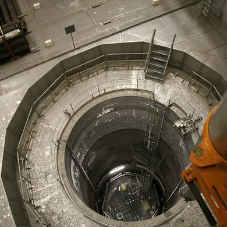
Businesses are becoming more worried about the financial impact of their electricity bills, according to a recent study.
The survey, conducted by OnePoll, highlights that 51% of businesses are concerned that they are not doing enough to track and manage their energy expenditure, but only 20% of businesses have a financial team that is responsible for monitoring the energy bills.
Out of the 500 businesses questioned, 14% of them had no member of staff to monitor this usage and the job was occasionally monitored by office staff and managers.
Taking simple measures to reduce the amount of energy used by switching off the lights or turning electrical appliances off standby is an easy way to save money whilst helping to keep your company as energy efficient as possible.
This survey has highlighted that businesses need to reduce their electricity and gas supply in order to make significant savings.
Julian Morgan, managing director of the Energy Advice Line, the UK’s leading price comparison and switching service for business electricity users, agreed that businesses need to make their energy costs a higher priority and said “Scrutinizing the market for the best available deals, and ensuring that you never, ever just stay with the same supplier year after year, has the potential to save businesses hundreds or even thousands of pounds a year”, reported at egovmonitor.com.
Here are some top tips that will help you to save on your electricity bills:
Invest in a timing and heating programmer
Whether you are looking to save electricity in your home, or you own a business that is looking to make savings on existing energy bills, a timing and heating programmer such as the Timer Fused Spur 7Day 13A Dp can help to make a huge difference.
This programmer allows you to set on and off periods to ensure that your energy usage is best suited to your needs and some programmers also allow you to make settings that control your heating and hot water to run continuously for example, or keeps them both off at the same time.
Depending on the time of year you can also change the settings to work alongside your thermostat, ensuring that you’re heating and water stays at the correct temperature. This will also save your financial team time as your programmer will keep track of your energy usage for you.
Light fittings
Why not think about using energy efficient lighting such as the Pendant Low energy lamp holder for use with low energy light bulbs to reduce the electricity costs. In the average household, lighting accounts for 8% of a typical energy bill so a business property with many staff to supply lighting for will use much more.
By simply replacing a traditional light bulb with a compact fluorescent batten bulb you will typically save £3 a year which will account to £55 over the life of the bulb.
You can also save energy by changing the way you use your lights by fitting the following low-energy alternatives:
• Compact fluorescents (CFLs) – These light bulbs are great when it comes to energy efficiency and are definitely a cost-effective option for general lighting purposes within the business industry.
• LEDs – LED lighting is recognised as being even more energy efficient and are the ideal way to replace halogen downlighters. Although led lighting is more expensive, it can help you make long term savings. These LED panels will deliver excellent light level and quality and they are also easy to install.
Although the type of bulb used can affect your electricity bill, it helps to simply turn off your lights when you’re not using them. If you own a business, it might be wise to make your staff aware of this so that you can all make a difference to be more economical.
Further Information:
This article was written by Electric Point; one of the largest electrical wholesalers in the UK, offering great deals on LED lighting and other energy saving products.









